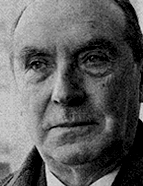

These two collections proved to be decisive for decades in the formation of literary canon and taste in Portugal. In the words of Lindley Cintra, “time alone will be the fair judge of what my generation of students […] owed to his literary culture, to the remarkable teamwork of those who, under the supervision of Rodrigues Lapa, devoted themselves to the obscure task of preparing those small books, with a sound text and well drafted prefaces, that featured in all our small private libraries.” (Prista, “Manuel Rodrigues Lapa”, http://cvc.instituto-camoes.pt/hlp/biografias/mrlapa.html).
Notwithstanding his dismissal from Faculdade de Letras, he continued to collaborate occasionally with other universities or similar institutions. He lived in Brazil in the 1950s and early 1960s, where he taught and held conferences at several universities in Rio de Janeiro, S. Paulo, Salvador da Bahia, and Belo Horizonte. In 1964, he taught a course on the Galician troubadour Lopo Dias in Instituto Martin Sarmiento [Martin Sarmiento Institute in Galicia], a place he was particularly fond of. This was a practical way of trying to solve interpretation and edition issues, “in a friendly and free environment not often experienced at University” (Miscelânea…,1982, 273-274). Proof of the relevance of his contribution to Galician studies is his admission to the Real Academia Galega [Royal Academy of Galicia] (Corunha).
Primary References: Origens da poesia lírica em Portugal na Idade Média, Lisboa, s.n.,1930; Cantigas d’Escarnho e de Mal Dizer dos cancioneiros medievais galego-portugueses, 2.ª ed. revista e aumentada, Vigo, Galaxia, 1970; Lições de literatura portuguesa. Época medieval, 10.ª ed. revista, Coimbra, Coimbra Editora, 1981; Miscelânea de Língua e Literatura Portuguesa Medieval, Coimbra, Universidade de Coimbra, 1982 (1.ª ed.: Rio de Janeiro, Instituto Nacional do Livro, 1965); As minhas razões. “Memórias de um idealista que quis endireitar o mundo”, Coimbra, Coimbra Editora, 1983; Correspondência de Rodrigues Lapa. Selecção (1929-1935), selecção, organização e introdução de M.ª Alegria Marques, Ana Paula Figueira Santos, Nuno Rosmaninho, António Breda Carvalho e Rui Godinho, Coimbra, Minerva, 1997.
Secondary References: BUESCU, Helena Carvalhão, Grande angular. Comparatismo e práticas de comparação, Lisboa, FCG – FCT / Ministério da Ciência e da Tecnologia, 2001; CASTRO, Ivo, “(Lapa) Manuel Rodrigues” in J. A. Cardoso Bernardes et al. (dirs.), Biblos. Enciclopédia Verbo das Literaturas de Língua Portuguesa, 2, Lisboa-S. Paulo, 1997. col.1344-1348; CEPEDA, Isabel Vilares, “Bibliografia do Professor Manuel Rodrigues Lapa”, Boletim de Filologia, tomo XXIX, 1984, pp. 595-628; DIOGO, José Ferraz, Manuel Rodrigues Lapa. Fotobiografia, Anadia, Câmara Municipal de Anadia – Casa Rodrigues Lapa, 1997; DIONÍSIO, João, “Lapa, Manuel Rodrigues”, in Giulia Lanciani e Giuseppe Tavani (organização e coordenação), Dicionário de Literatura Medieval Galega e Portuguesa, Lisboa, Caminho, 1993, pp. 380-383; Filologia, literatura e linguística: comemorações do centenário do nascimento do Professor Doutor Manuel Rodrigues Lapa, [Porto], Fundação Eng. António de Almeida, 2000; LE GOFF, Jacques, “História” (trad. Irene Ferreira), Enciclopédia Einaudi, vol. I (Memória-História), Lisboa, Imprensa Nacional – Casa da Moeda, 1984, pp. 158-259; PRISTA, Luís, “O ensino linguístico e de literatura”, in António Nóvoa (dir.), A Universidade de Lisboa nos Séculos XIX e XX, vol. II (coordenação de Sérgio Campos Matos e Jorge Ramos do Ó), Lisboa, Tinta-da-China, 2013, pp. 982-1085; IDEM, “Manuel Rodrigues Lapa”, http://cvc.instituto-camoes.pt/hlp/biografias/mrlapa.html (14-8-2013); VELOSO, Rita, “Rodrigues Lapa, Professor da Faculdade de Letras de Lisboa”, Actas do XII Encontro da Associação Portuguesa de Linguística, vol. II, Lisboa, Associação Portuguesa de Linguística, 1997, pp. 587-604.
João Dionísio
